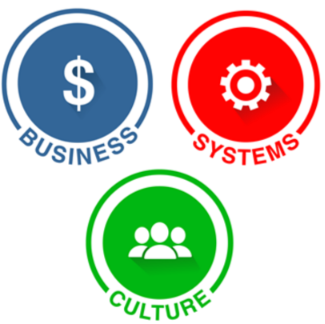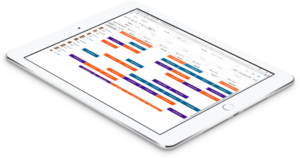What separates the winners from the losers in running and managing a financially successful restaurant? As pictured above (image credit Forbes) Danny Meyer of Shake Shack. Most successful restaurateurs have mastered or have set in place the right partners and people to concentrate on 3 key areas: 
- Well developed business skills
- Effective systems implementation
- Strong positive cultures
If you’re like most Manhattan restaurant managers and owners, the daily pressure of keeping track of your finances and profitability are what seem to burden you above anything else. The reality is that only when you put a system in place, which knows and understands your unique back office accounting, is when it’s finally possible for you to actually focus on running your dream hospitality business.
All independent restaurant owners face these kinds of bookkeeping and accounting issues:
- Vendor invoice tasks: Valuable resources and time can be wasted dealing with lost, unposted or simply unpaid invoices and credits, rather than management of your restaurant.
- Inaccurate accounts payable reporting: As your restaurant invoices start to pile up because you or your in-house bookkeeper falls behind in daily data entry, you can get lost and never be quite sure what you owe each week.
- Unreliable checkbook reporting: Not using software that reconciles your accounts automatically, to verify that all deposits are posted and correct, can turn into a nightmare. Old school methods of calling the bank each morning for your account balance is not exactly what we would consider balancing your checkbook. As a result of inaccurate checkbook balancing, because you handwrite checks to vendors, you to lose the ability to forecast future cash flow.
- Weekly prime cost reporting: By having any of the issues just mentioned, you will experience great difficulty when attempting to produce a weekly report that analyzes your sales vs. prime costs. Most in-house bookkeepers are young and lack relevant training or experience. This may result in the faulty production of reports and certainly the ability to analyze these reports. This is crucial because not having credible reporting where problem areas can be highlighted and adjusted, particularly in your cost of goods and payroll expense areas can cost your business thousands of dollars each month.
- Key income producing details: Your income is in direct correlation with your time spent on strategic activities for attracting customer reservations, filling tables and managing a consistent food and dining experience. A satisfied customer will become a returning customer and perhaps spread the positive word to friends about the excellent dining service you provide. Bookkeeping and accounting do not actually produce income for you per se.
- Types of accounting methods: If you are getting a profit & loss statement report at all, chances are you might not be receiving it in a restaurant specific format. Only complete and properly constructed financial statements tailored to your industry will allow you to review your restaurant’s profitability and performance at a glance.
Having a proven, tried and tested accounting process is very important when collecting the building blocks that will lead to profitability. This includes paying bills on time, timely financial reporting and actually knowing where you stand financially; all of these factors require accounting practices that are efficient and accurate. We have spoken with a number of NYC restaurant owners and operators in the last few years and want to share how the successful ones accomplish various accounting and bookkeeping oriented tasks. This may sound obvious but surveys have strongly indicated that restaurateurs who adopted good accounting practices were more profitable than those who did not.
Some of the more common financial accounting best practices include:
- Daily recording of sales and receipts

- Detailed cost recording of purchase invoices
- Weekly food, wine, liquor and labor cost reporting
- Counting and computing inventory on a weekly or monthly basis
- Tracking key inventory item usage on a daily or weekly basis
- Designating key persons for accounting-oriented tasks or outsourcing these tasks
- Making sure your POS sales data gets integrated into your bookkeeping system
- Using a POS system for tracking time and attendance
- Having a financial profit & loss statement at least monthly
[vc_row][vc_column css=”.vc_custom_1488666167977{background-color: #1da1f2 !important;}”][vc_column_text]
Of this list, there were 3 accounting best practices that were common to the most profitable NYC independent restaurants
- Having a financial profit & loss statement completed on at least a monthly basis
- Having weekly food, wine, liquor and labor cost reporting
- Counting and computing inventory on a weekly or monthly basis
[/vc_column_text][/vc_column][/vc_row]
The bottom line is that hospitality and food business owners who incorporate back office accounting best practices into regular and consistent practices are more likely to be profitable than those that don’t invest in bookkeeping software and services. Contact Bookkeeping Chef to see how we can help your business better control cash flow and maximize profits at substantially lower cost than in-house headcount. Make Chef your back office partner today!
